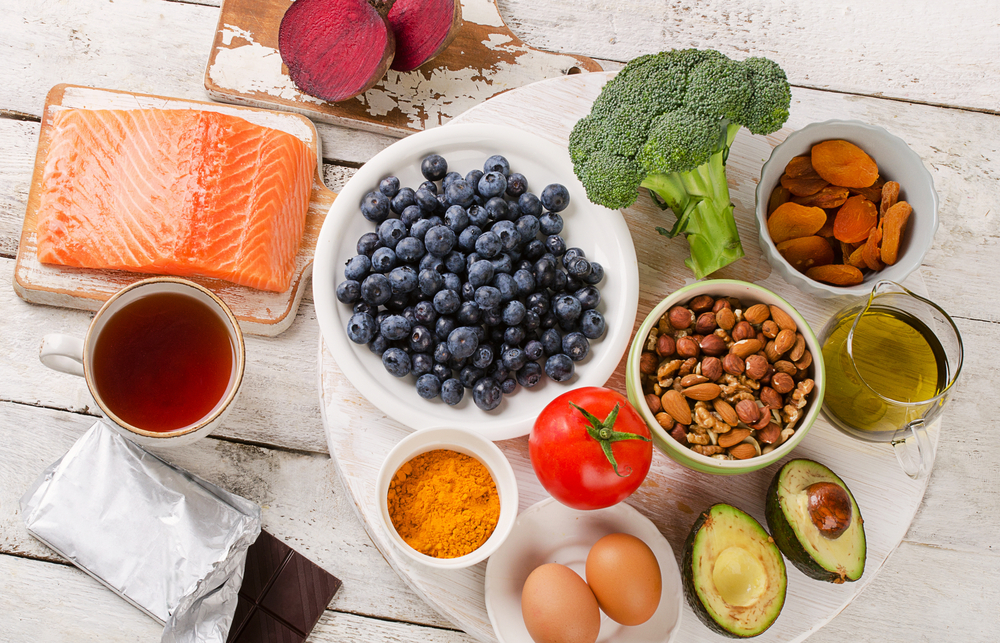What we eat affects how well we function and it all starts with the brain. Certain foods help produce neurotransmitters, which are the brain chemicals that communicate information throughout our brain and body. Here’s a breakdown of the key neurotransmitters to know about, and what we need to eat to keep them at their optimum levels.
Neurotransmitters relay signals between nerve cells and the brain uses neurotransmitters to tell our heart to beat, our lungs to breathe, and our stomach to digest. They can also affect mood, sleep, concentration and weight. Here’s a breakdown of the key neurotransmitters to know about, and what we need to eat to keep them at their optimum levels.
GABA (Gamma-aminobutyic acid)
“This is the calm-and-chill neurotransmitter,” says Julie Fergusson, Red Seal naturopath. “It has a calming effect on the brain and body. If it’s too low, you get anxiety – it’s like your body’s natural valium.”
What to eat more of to boost your levels: Oats, almonds, juice, lentils, potatoes, walnuts, rice bran. Berries, citrus, coffee, wine, herbs like passionflower. Green tea is also great, being rich in antioxidants. “Probiotics for gut health are also really important with your GABA neurotransmitter,” says Fergusson.
Serotonin
Probably the most well-known neurotransmitter, serotonin is our happy, mood-enhancing neurotransmitter. “It not only helps with that happiness but it also deals with learning, and it helps regulate our sleep-wake cycle. If you’ve got low serotonin, it doesn’t convert to melatonin, which is really important for controlling your sleep-wake cycle,” Fergusson says.
What to eat more of: Foods containing the amino acid tryptophan, which is the precursor to serotonin and melatonin. Dairy (milk, yoghurt, cottage cheese), turmeric, salmon, chocolate, peanuts, omega 3. “Your good oils are absolutely vital – whether they’re in nuts or seeds or fish. I’m also a big fan of coconut oil.” Exercise, sunshine and vitamin D can also help regulate your serotonin.
Acetylcholine
An ester of acetic acid and choline, this is considered the learning, thinking and memory neurotransmitter. “It’s involved in all those thought processes, and helps with attention and keeping off weight. It’s most well-known for memory recall and staying focused,” says Fergusson.
What to eat more of: Meats, poultry, fish, egg yolks. Supplements like B12, krill oil and fish oil.
Noradrenaline
“A lot of people consider this a hormone, but it’s also a neurotransmitter,” Fergusson says. “If you have low noradrenaline, you can experience brain fog, depression, panic attacks. If you have too much, you could end up with adrenal burnout, memory loss and mood swings. This one is about balance,” she says.
What to eat more of: Bananas, chicken, chocolate, beans, cheese, eggs, porridge, oatmeal. Supplements can include Vitamin C, B6, 5-HTP, magnesium and adrenal herbs called adaptogens.
Dopamine
“This is ‘the motivator’ neurotransmitter”– the one that makes you strive to get things done. “It’s often linked with addiction, so we have to be really careful. Throughout the day we try to stimulate our dopamine levels because maybe they’re too low, and we tend to grab something sweet, [or] caffeine, [or] alcohol. Some people do recreational drugs, or have habits like shopping and gambling, sex, all to increase that feeling you get from higher dopamine levels.”
What to eat more of: Foods containing the tyrosine amino acid, which helps with boosting dopamine levels. These include avocado, beetroot, apples, chocolate, almonds, coffee, eggs, beef and bananas.
Iron levels
Iron deficiencies in women can be common; if your levels are down, it can be easy to lack focus, says Fergusson. Make it a priority to check your iron levels.
What to eat more of: Red meat, seafood, beans and dried fruits including raisins and apricots.





